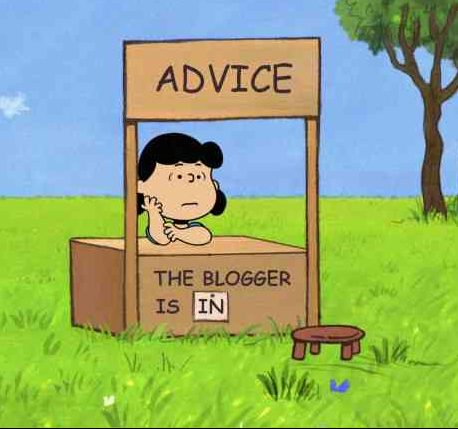10 Things You Ought to Learn before You Self-Publish Your Book
Today’s post is by author Karen Pashley:
Going indie is a fantastic adventure. So much to learn! So much to do! If there is one thing I could advise wanna-be indie authors, it’s this: resolve to learn all you can well in advance of actually publishing your book.
What, you say, is there to learn? All I need to do is write my book, design a nice cover, and upload the whole thing to Createspace, right?
Oh, ye of little indie knowledge.
There’s a bit more to it than that, as I found out with my first indie project—an edgy women’s inspirational novel.
To break it down, let’s begin with a list. Because search engines love lists. This is a tidbit you’ll pick up during your SEO education. (That’s search engine optimization—also known as tip #5 on my list).
Here we go.
The top ten things you ought to learn before attempting to publish a book.
- Learn all you can about your genre.
This should go without saying, but I’ve met quite a few writers who dove in to writing a romantic, suspenseful, historical sci-fi adventure only to hit a roadblock a third of the way in.
Rather than write blind, spend some time educating yourself. Go to Amazon or GoodReads and search best-selling books in your genre. Use the look inside feature to read first pages, first chapters, blurbs, even acknowledgements. Read the reviews.
Take note of what seemed to grab readers’ attention the most. Observe the book covers. Try and pinpoint patterns, font styles, colors, images, and the feelings they evoke.
These books are selling a ton of copies and you can learn from their success. Knowing what works and how you want to convey your vision for your project will save you time, frustration and money in the long run.
- Learn how to start building an email list long before your book is available.
Don’t have a clue how to do that? I didn’t either. Which was why I avoided this crucial piece of the publishing puzzle for so long. In the back of my mind, the haunting mantra, “you need to be building an email list” clung to me through the first drafts of my book, through the edits, and into the pre-launch phase.
Although it’s never too late to start, I regret that I waited so long. Catch-up is not the mode you want to be in while launching your indie author career.
So how do you learn about building a list? Attend a webinar, study successful blogs of writers you admire, take a workshop at a conference, join an indie author Facebook group for tips and advice from writers who are further along in the journey.
Experiment with different approaches long before your release date—maybe even before you begin writing that first book. It’s never too early to start your email list. Sigh.
- Learn the value of a good critique.
Though it’s tempting to listen only to those who have your best interests at heart, like your mom or your best friend, it’s more helpful to hear from readers who have no bias towards you. You’ll gain essential feedback by having your first page and first chapter critiqued.
Perhaps you need to increase the tension between your characters, or cut unnecessary backstory or add an element of surprise. These observations can help lay the foundation for a great first draft.
As your manuscript develops, continue to seek out critique opportunities through writers’ conferences. Some offer professional critiques from agents or editors for a small fee. Enter critique contests online. Join a critique group, but use caution when incorporating feedback.
Before you make suggested changes, have the observation or comment confirmed from another source. One person’s opinion needn’t cause you to have a meltdown or to make major changes to your story.
- Learn how to create a killer elevator pitch.
Once people find out you are writing a book, you will be asked, “so, what’s your book about?” about a zillion times. Smile. Thank them for asking. People are asking because it’s interesting to them.
You don’t want to flash them your deer-in-headlights, I-have-no-idea-how-to-answer-you face. Jot down some concise teaser lines on 3 x 5 cards. Memorize two or three different one-sentence answers and you’ll be able to nail it every time. Confidence. It’s a good thing.
- Learn what the heck SEO is and how you can use it to reach your readers.
Search engine optimization is the key to people finding you on the internet. Writing a blog? Wonderful! But, if no one stumbles across it, what good is it doing? Investing in Facebook ads? Great! But your hard-earned money might be floating off into cyberspace if you don’t learn the keys to search engine optimization.
Take a free webinar. Sign up for weekly cyber-geek blogs. Ask your kid’s computer teacher at school to give you some pointers. Barter with a college student to help you out. SEO knowledge is available in abundance. Learn it now and reap the rewards when it comes time to promote your books.
- Learn how to write blurbs.
A blurb is a window into your book designed to peak interest and entice someone to want to read it. Write several versions, some short, some a little longer to accommodate different audiences. A blurb for a press release may be different than for social media.
At minimum, you’ll need a blurb for the back of the book, one for your description on Amazon and other distribution sites and one for ads you may place. Prepare your blurbs early and save yourself from scrambling at the last minute.
- Learn how to build a network.
Now. Not when you’re in the final round of edits on your manuscript. Join some online groups. Engage with people who read your genre on GoodReads. Attend a conference or workshop and ask your fellow participants for their contact info. Keep in touch with the movers and shakers you meet. Send an occasional note.
Know someone who is writing a story set in your hometown? Offer to answer questions or share your insight. Go to book launches. Meet readers. Meet authors. Be friendly. Be bold. Get out of your comfort zone. Get. Connected. Now.
- Learn ways to utilize your network.
Build a spreadsheet of all the people, places and things that might tie in with your book. Even if it’s a stretch. The bigger your list gets, the more confidence you’ll build as you plod along towards releasing your book into the world.
Do you write historical Westerns? Reach out to the historian at your local museum and offer to teach a workshop. Do you write romance? Ask your pal at your spa of choice to donate a spa gift certificate as part of your book-launch promotion. Do you write thrillers? Gather a group of influencers in your community and throw a murder mystery party to thank them for helping promote your new book.
Record every name and every harebrained idea you come up with on your network spreadsheet. You never know what might prove useful as your indie career grows.
- Learn to utilize Fiverr.
Otherwise known as the best $5 you’ll ever spend. For social media banners, promotional materials, logos, 3D images of your covers, business card design, etc. Why waste valuable writing / networking hours doing things you can have someone else do for five bucks? That’s a coffee, people!
In less time than it takes to order and pick up my beloved skinny latte, I can hire a designer, describe what I need done, and upload my request to Fiverr. Enough said.
- Learn social media etiquette.
You’ll be putting yourself out there. A lot. Learn the basics of how often to post and how much book promotion is appropriate. Nobody likes a timeline hog. Don’t become one.
Self-promotion and book promotion will be part of your online presence, but it should never dominate to the point of turning people off. Learn how to connect with bloggers, influencers, and fellow writers and how to leave constructive comments.
Connecting online will exponentially increase your online footprint. The more your name and brand are out there, the greater the opportunities you’ll create for promoting your books. Learn how to use hashtags. No idea what that means? Google it. Spend a few minutes familiarizing yourself with this handy little social media tool.
Your indie tool box should be filling up with all sorts of useful tools. After all, you’re becoming a craftsman in your field. You’ll need more than just great writing to share your masterpiece with the world.
What advice helped you on the road to indie publishing? Which one of these ten things are the most challenging for you?
 Karen Pashley lives in Nashville, Tennessee, with her husband and the youngest of their four daughters. Her first novel, Precious in His Sight, won first place at the 2014 Blue Ridge Christian Writer’s Conference. Visit Karen’s website to connect and learn more about her writing.
Karen Pashley lives in Nashville, Tennessee, with her husband and the youngest of their four daughters. Her first novel, Precious in His Sight, won first place at the 2014 Blue Ridge Christian Writer’s Conference. Visit Karen’s website to connect and learn more about her writing.
Feature Photo Credit: WanderingtheWorld (www.ChrisFord.com) via Compfight cc
Feeling overwhelmed by all the things you need to know about SEO and how to get your book to rank at the tops of the search results and Amazon best-seller lists?
My new online course Targeting Genre for Big Sales will walk you through everything you need to know to understand what genre categories are, how novels and nonfiction books are sorted and searched by keywords and put into lists on Amazon, and how you can adjust what and how you write to hit the best-seller lists.
ENROLL NOW! This course is $397 with lifetime access. Study at your own pace, join the Facebook private group, and get support as you climb the rankings to success! CLICK HERE for instant access!
“This instruction has been a game changer for me personally. I went from selling practically nothing to a couple of thousands books per month just from following the steps you laid out!”
—S.D.
“My book went right to the #1 bestseller lists. There is absolutely no doubt whatsoever that this immediate success is due to your guidance on carefully selecting key phrases and writing them into the product description, then selecting the less competitive categories. There is no way I would have had this success without optimizing the Amazon search engine according to the information and directions set out in your course material. I’m forever grateful for this, Susanne.”
—Garry Rodgers
“If you’re serious about writing, then you seriously need this course on Targeting Genre as provided by expert instructor and author C. S. Lakin. Books that don’t sell are just reams of paper filled with a dream that died upon awakening. But if being an author is your calling, coupled with a burning desire to succeed in today’s market, Lakin delivers all the tools you will need.”
—Dawn Mattox
“Lakin’s class ‘Targeting Genre for Big Sales’ overflows with step-by-step principles essential for all career-minded authors. Regardless of traditional, indie, or hybrid publishing aspirations, this course will show you how to increase discoverability and sales. I’ve recommended it to all my writer friends. Get it now. It’s worth every penny!”
—Rachelle Denecochea












Thank you for this posting. It actually dovetails in with the “Targeting Genre for Big Sales” webinar I participated in earlier this week. I have identified several areas where I need to get more education. More importantly I need to be brave and put myself in uncomfortable places or experiences so that I can move forward as I am stuck at the moment. This is not a time for me to be stuck because the second book of my science fiction series is coming out very soon and I need to use that as inspiration to get ME out there. Than you to Karen Pashley for the succinct list of things to learn. I, my books, and the marketing of them are in continual state of improvement.
Allynn,
You’re not alone—we all feel the pains of stretching ourselves to accomplish our publishing goals. The first step, as you pointed out, is the willingness to move out of our comfort zones. I am right there with ya! But, I will say that when I feel knowledgeable and equipped my fear-o-meter falls to a manageable level.
Good luck with your forthcoming book!
Excellent article for new writers. Educating yourself in these areas before you start writing will pay off in the end–big time. Unfortunately, I learned the hard way.
I hear you, Florence! Those of us who have been down the road owe it to our fellow writers to share our knowledge and experiences with them. Hopefully articles like this will eliminate some of the frustration for people!
Thank you for this advice! #7 is the hardest step for me – I’m a naturally self-reliant person, much to my detriment. I need to do a better job both of helping others and reaching out when I need help myself.